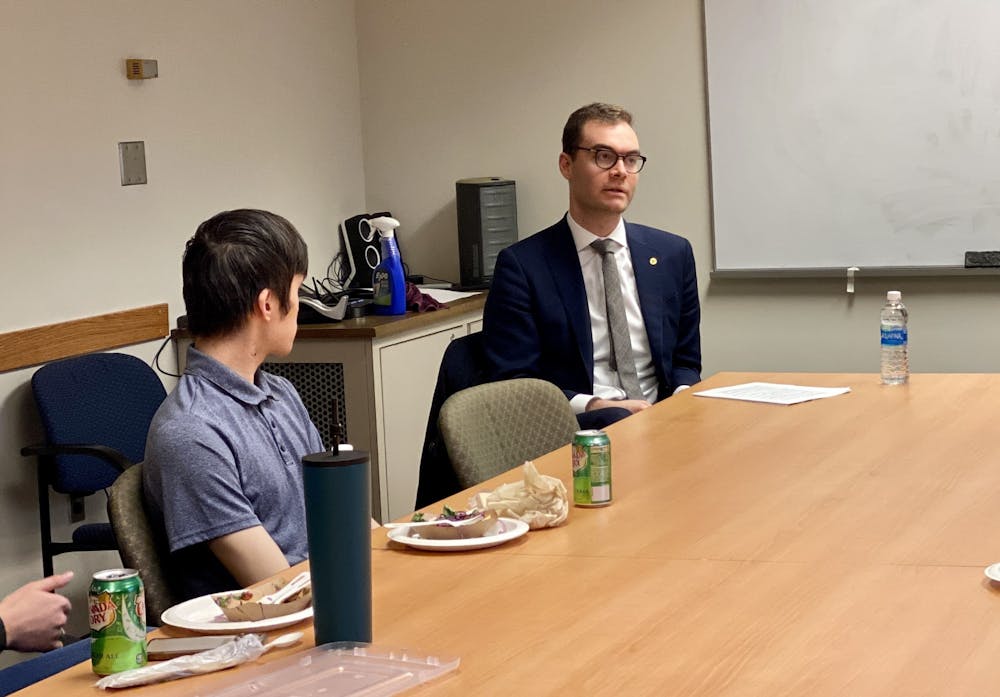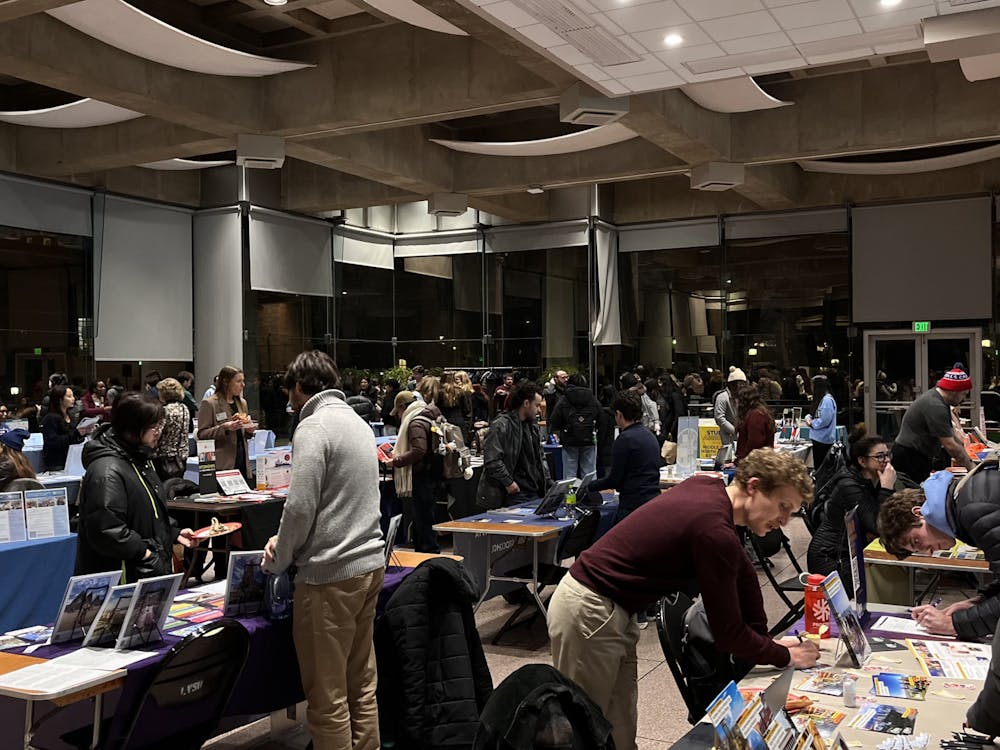Andrew Petrisin, supply chain advisor at the U.S. Department of Transportation (USDOT), gave a talk titled “Supply Chains and Emerging Economic Issues” on March 10. He examined significant supply chain-related problems that the U.S. is currently facing and how the federal government aims to solve them. This event concluded the 2023 Speakers Series “Emerging Threats in the New World Order” hosted by the Aronson Center for International Studies and the International Studies Leadership Council (ISLC).
In an email to The News-Letter, International Studies Program Director Sydney Van Morgan highlighted that the outbreak of COVID-19 caused people to realize that supply chain disruptions are serious problems that could destabilize the international system. She called for a need to understand how supply chain dynamics can both support and undermine national security.
“We have entered an era of post-pandemic international relations where many new issues and challenges have emerged. Students need to understand these new threats – alongside older ones like nuclear weapons – to inform their current studies and future careers," she wrote.
In an interview with The News-Letter, junior Loukas Collatos shared his reasons for attending the talk.
“I've always been very interested in economics and these related issues,” he said. “[The topic] is not something I see often as a pre-med student at Hopkins, so I thought I could get out of my comfort zone.”
Morgan explained that the ISLC invited Petrisin due to his involvement in supply chain policymaking in the Biden administration. She noted that his current role in the USDOT and prior work in the White House provides a birdseye view of the issues surrounding supply chain politics.
Petrisin voiced that many of the economic policy challenges we face today, such as investment in infrastructure and domestic manufacturing and sourcing, are impacted by the partnerships, or lack thereof, of the public and private sectors.
“Our inability to find ways to work together in a cooperative sense essentially hinder our collective progress and our collective goals,” he said.
In particular, Petrisin emphasized the role of trust in establishing an operationally cooperative freight system, although he pointed out it is difficult to overcome the lack of cooperation as the industry is extremely fractured.
In an interview with The News-Letter, junior Yanni Nikas commented that Petrisin’s discussion on trust particularly stood out to him.
“It seemed that a higher level of cooperative engagement and having all the parties working on it was an important thing in order to solve the problem,” he said. “But obviously it's a big challenge because the industry is very fragmented, so it's an interesting problem.”
Petrisin added that the more he worked on supply chain policymaking, the more he came to believe that while the federal government is not an operator in this system, it has a key collaborative role to address this issue by convening such fragmented entities toward national goals.
Petrisin asserted that one pressing challenge is that a collective data sharing network has not been established. Currently, even foundational information, such as the total volumes of cargo that are coming into the country, is unknown. While each individual party knows their own supply chain, they are fairly blind to their external operating environment.
This encouraged Petrisin to lead the development of the Freight Logistics Optimization Works to improve data sharing and transparency across the supply chain enterprise.
Collatos expressed his shock after learning that there is an absence of a common, integrated view.
“It was crazy that they don't know what comes into our ports. That seems like such a simple thing that should definitely be happening,” he said.
Petrisin acknowledged that entities do not have a built-in incentive to share the data as they must compete against each other.
“On the supply side, [such as the] motor carrier, there really isn’t a commercial incentive for you to share your asset allocations and availability of your trucks with anyone else,” he said.
Petrisin stated that it is important to identify shared interests between the public and private sectors and state and federal governments so that the parties can build a trust-based relationship. Ultimately, he believes that the main goal of his work is to create a commercially competitive and operationally cooperative freight system.
He shared his advice with students who are interested in working in his field, citing how one challenge policymakers face is needing to develop policies that help people execute a certain task although they have never done it themselves.
“My big piece of advice is that if you want to make policies about [a certain topic], to go get experience on it because it just fundamentally changes your ability to be effective in those roles,” he said.





